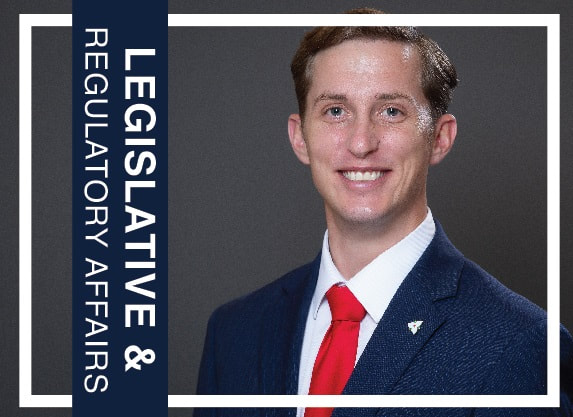|
by John Alexander, Director of Legislative & Regulatory Affairs
In-Depth Analysis of Mortgage Trigger Reports and Legislative Changes - HR.2656 Imagine this: You've just applied for a mortgage in North or South Dakota, envisioning a peaceful life in the heartland. But instead of peace, your phone explodes with relentless robocalls and your inbox overflows with unsolicited emails. This invasion, stemming from the sale of your mortgage application details, is a stark reality for many Dakotans. Credit bureaus are cashing in on these personal moments, turning private financial steps into public fodder for aggressive lenders. For residents of the Dakotas, what should be a private milestone in homeownership is becoming a gateway to unending and unwelcome financial pitches. As the Dakota Credit Union Association grapples with the fallout of predatory mortgage trigger leads in North and South Dakota, our advocacy efforts have intensified. We're not just observing from the sidelines; our actions are aimed at protecting the interests of credit union members from invasive marketing practices. With a vigilant eye on legislative developments and a commitment to ensuring consumer privacy, our focus has shifted towards fostering a more ethical and transparent financial environment. This section delves into our recent initiatives and collaborations, highlighting our proactive stance in this ongoing battle for consumer rights and financial dignity. Detailed Insights on HR.2656 Introduced by Representative Ritchie Torres, HR.2656 proposes to amend the Fair Credit Reporting Act, targeting the sale of trigger leads in the mortgage sector without consumer consent. This legislation focuses on safeguarding consumer privacy in financial transactions, particularly during mortgage applications. Understanding Trigger Leads Trigger leads refer to the practice of selling consumer data, especially credit information, by credit bureaus to lenders following specific events like mortgage applications or credit score changes. This practice is currently permissible under the Fair Credit Reporting Act, but it raises concerns over consumer privacy and potential unfair lending practices. Consumer Rights and Credit Unions' Challenges HR.2656 aims to provide enhanced privacy protection to borrowers, reducing unsolicited financial offers following significant financial decisions. While this is beneficial for consumer rights, it poses significant challenges for credit unions. Restricted access to trigger lead data may impede credit unions' ability to reach potential customers promptly, affecting marketing strategies and possibly impacting competition in the financial sector. Consumer Rights and Opt-Out Options A key aspect of consumer protection in the context of HR.2656 is the provision for individuals to opt out of prescreening. While this empowers consumers, it poses a challenge for credit unions. If a member opts out, it restricts the credit union's ability to prescreen them, potentially affecting their marketing strategies. This development represents a significant shift in the balance between consumer privacy and marketing efficacy. NAMB and ICBA Support National Association of Mortgage Brokers (NAMB) has shown strong support for HR.2656, highlighting the potential to improve consumer privacy and prevent predatory lending practices. The Independent Community Bankers of America (ICBA) also backs the bill, emphasizing consumer protection from invasive solicitations post-mortgage application. Legislative and Regulatory Outlook HR.2656's journey through the legislative process will require careful consideration from policymakers, balancing consumer privacy and fair competition in the financial industry. The fate of similar bills in previous congresses suggests cautious optimism about its passage. The industry must stay vigilant and prepared for any changes resulting from this legislation. NCUA Chair Harper Advocates for Legislative Support to Bolster Credit Union System NCUA Board Chair Todd Harper recently sought legislative support from the Senate Committee on Banking, Housing, and Urban Affairs. Addressing critical challenges faced by the credit union industry, Harper focused on strengthening the system and discussed key legislative requests. One of the primary concerns highlighted was the growing liquidity risks within the credit union system. To combat this, the NCUA Board has sought Congress's permission for permanent statutory authority allowing corporate credit unions and other agent members of the Central Liquidity Facility (CLF) to purchase capital stock for a subset of the credit unions they serve. This change aims to make liquidity sources more accessible and affordable for smaller credit unions, a move deemed cost-neutral by the Congressional Budget Office. In addition to liquidity challenges, Harper emphasized the need to restore the NCUA's authority over third-party vendors and enforcement and examination authority for credit union service organizations (CUSOs), which lapsed over two decades ago. This restoration is crucial due to the increased interconnectedness of the world and would bring the NCUA in line with other federal banking agencies in terms of supervisory capabilities. Furthermore, in the context of potential changes to share and deposit insurance coverage levels, the NCUA defers to Congress's judgment but requests that any changes maintain parity between the share insurance by NCUA and the deposit insurance by FDIC, ensuring equal protection for consumers. Additionally, they seek more flexibility in administering the Share Insurance Fund in case of adjustments to coverage levels. This testimony underscores the evolving challenges and regulatory needs of the credit union industry, highlighting Harper's proactive approach in seeking legislative assistance to safeguard and strengthen this sector. ViClarity Partnership – Our New Compliance Solution Dakota Credit Union Association is bolstering its commitment to provide value-added services and resources to its affiliated members. We're excited to announce a new collaboration with ViClarity, a global leader in governance, risk, and compliance consulting solutions tailored specifically for credit unions. ViClarity's expertise in compliance and regulatory consulting extends to nine credit union leagues/associations, covering 16 states and benefiting over 1,000 credit unions across the United States. This strategic partnership aims to equip our members with enhanced compliance support and regulatory solutions. To introduce you and your team to ViClarity, we're hosting an introductory launch webinar, followed by a “hot topic” Town Hall on compliance, scheduled for Tuesday, November 28th at 3 PM CT / 2 PM MT. This event is an excellent opportunity to familiarize yourselves with the valuable resources ViClarity brings to the table. Beyond Dakota Credit Union Association, ViClarity also serves other well-respected organizations, including the California/Nevada Credit Union Leagues, Iowa Credit Union League, Nebraska Credit Union League, Ohio Credit Union League, and the Cooperative Credit Union Association (Massachusetts, Rhode Island, Delaware, and New Hampshire). By integrating ViClarity into our suite of dues-supported services, alongside offerings like InfoSight and CU PolicyPro, Dakota Credit Union Association is dedicated to providing its members with the highest quality compliance support and solutions available in the industry. You'll find the link to the introduction launch and the Compliance Hot Topic Town Hall here, and we encourage you to share it with your team members and others who rely on the association for compliance support. Stay tuned for a calendar invite to reserve your spot. Holiday Sweepstakes Update – Payments System Glitch Attention Members: Our electronic payment system, essential for event transactions and the CUPAC-CULAC sweepstakes, is currently down. This problem has persisted for more than a week, impacting our fundraising activities. Efforts are underway to fix this issue, and we aim to have it resolved by the end of this week. Further updates will follow. To mitigate the impact of this downtime, the deadline for the sweepstakes has been extended to 5 p.m. on December 8. We are revising our promotional efforts to reflect this change. Upcoming Important Dates
Comments are closed.
|
The MemoThe Memo is DakCU's newsletter that keeps Want the Memo delivered straight to your inbox?
Archives
July 2024
Categories
All
|
|
Copyright Dakota Credit Union Association. All Rights Reserved.
2005 N Kavaney Dr - Suite 201 | Bismarck, North Dakota 58501 Phone: 800-279-6328 | [email protected] | sitemap | privacy policy |






